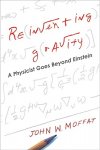Re: Las creencias de los ateos y agnósticos.
Esto por el departamento de Astrofísica de la University of California, Los Angeles
NASA
Insisto........ por DEFINICION las teorias no son comprobables.
http://www.astro.ucla.edu/~wright/cosmology_faq.html#BBevidence
Las teorías por definición son incomprobables. Una teoría siempre debe estar abierta a la falsabilidad.
Frequently Asked Questions in Cosmology
What is the evidence for the Big Bang?
The evidence for the Big Bang comes from many pieces of observational data that are consistent with the Big Bang. None of these prove the Big Bang, since scientific theories are not proven. Many of these facts are consistent with the Big Bang and some other cosmological models, but taken together these observations show that the Big Bang is the best current model for the Universe. These observations include:
* The darkness of the night sky - Olbers' paradox.
* The Hubble Law - the linear distance vs redshift law. The data are now very good.
* Homogeneity - fair data showing that our location in the Universe is not special.
* Isotropy - very strong data showing that the sky looks the same in all directions to 1 part in 100,000.
* Time dilation in supernova light curves.
The observations listed above are consistent with the Big Bang or with the Steady State model, but many observations support the Big Bang over the Steady State:
* Radio source and quasar counts vs. flux. These show that the Universe has evolved.
* Existence of the blackbody CMB. This shows that the Universe has evolved from a dense, isothermal state.
* Variation of TCMB with redshift. This is a direct observation of the evolution of the Universe.
* Deuterium, 3He, 4He, and 7Li abundances. These light isotopes are all well fit by predicted reactions occurring in the First Three Minutes.
Finally, the angular power spectrum of the CMB anisotropy that does exist at the several parts per million level is consistent with a dark matter dominated Big Bang model that went through the inflationary scenario.
Esto por el departamento de Astrofísica de la University of California, Los Angeles
Theory
A scientifically testable general principle or body of principles offered to explain observed phenomena. In scientific usage, a theory is distinct from a hypothesis (or conjecture) that is proposed to explain previously observed phenomena. For a hypothesis to rise to the level of theory, it must predict the existence of new phenomena that are subsequently observed. A theory can be overturned if new phenomena are observed that directly contradict the theory.
NASA
Insisto........ por DEFINICION las teorias no son comprobables.
http://www.astro.ucla.edu/~wright/cosmology_faq.html#BBevidence



